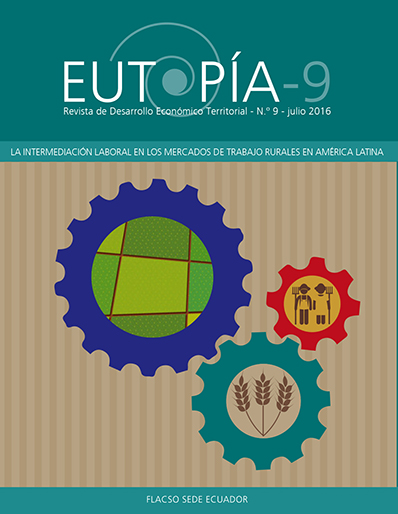Labor Contractors, Coyotes, and Travelers: The migration industry in Latin America and the U.S. South
Resumen
During the 1990s, migration researchers in sociology and anthropology focused disproportionately on the idea of transnationalism, leading to investigations of critically important phenomena such as transnational parenting, diaspora politics and identity, flexible citizenship, social remittances, and other factors influencing the experiences of international migrants. This work also produced comprehensive ethnographic accounts of families and communities with attachments to places in two or more countries, profiling peoples who had forged dynamic relations between sending and receiving neighborhoods based on economic opportunities, cultural exchanges, and social networks. The argument presented here offers a slightly different perspective on transnationalism, examining managed migration and the migration industry that has emerged around labor contractors, human smugglers (coyotes), and travelers who routinely carry goods between migrant sending and receiving communities. While this industry facilitates transnationalism, like transnationalism it is ultimately a symptom of a process more comprehensive than international migration: capital’s desire for a highly flexible labor force that expands and contractsseasonally and in response to periods of economic growth and decline, is highly mobile, and is largely separated from reproductive settings.Descargas
Derechos de autor 2016 David Griffith

Esta obra está bajo licencia internacional Creative Commons Reconocimiento-NoComercial 4.0.

Eutopía, Revista de Desarrollo Económico Territorial opera bajo licencia Creative Commons Reconocimiento-Sin Obra Derivada 3.0 Unported (CC BY-ND 3.0).
Los autores/as que publiquen en Eutopía aceptan estos términos:
Usted es libre de compartir — copiar y redistribuir el material en cualquier medio o formato para cualquier finalidad, incluso comercial. Por tanto, autores conservan los derechos de autor y ceden a la revista el derecho de la primera publicación (CC BY-ND 3.0), que permite a terceros la redistribución, comercial o no comercial, de lo publicado siempre y cuando el artículo circule sin cambios.
Existen las siguientes condiciones para los autores:
Reconocimiento — Debe reconocer la autoría, proporcionar un enlace a la licencia e indicar si se han realizado cambios. Puede hacerlo de cualquier manera razonable, pero no de una manera que sugiera que tiene el apoyo del licenciador o lo recibe por el uso que hace.
Sin Obra Derivada — Si remezcla, transforma o crea a partir del material, no puede difundir el material modificado.
Para más detalles, visitar la página de Creative Commons (CC).


























